Partner’s Podcast: Did You Know?

Have you ever wondered what goes on behind the scenes at Partner Veterinary Emergency & Specialty Center? For example, what does a veterinary specialist do and how are they different from your primary veterinarian? What is a Fluoroscopy and how will that help your pet? Maybe you’re wondering what the difference is between a Hospital Concierge, Client Service Coordinator, and a Care Advocate.
Welcome to DID YOU KNOW? … a new series by Partner Veterinary. In this series, we will explore all things veterinary medicine and all things Partner. In each episode, we will answer some of the most common questions we are asked. From Neurology to Emergencies and everything in between, if it happens at Partner, we’ll cover it.
If you have a question that we haven’t answered, please let us know and we’ll ask it for you! Email your questions to [email protected].

Episode 13 – Paving a Path Forward in Veterinary Medicine
In this episode we hear from Partner’s CEO and Co-Founder, Katie Brooks, who is also a Licensed Veterinary Technician and a Certified Veterinary Practice Manager. Katie talks about her path toward becoming an LVT and navigating the complexities of veterinary medicine. She also shares why she chose to create an emergency and specialty hospital where caregivers are empowered to take ownership of their role and responsibility, and where the phrase “We Can Help” truly means something to pet owners in need. She often jokes; I built these hospitals for my oldest Labrador. “For me, the peace of mind that our team is there when needed has been so valuable to our family and the community. It’s the pets who help emotionally regulate the entire family—the health of the family rests on the health of the pets.”

Episode 12 – The Dedication Behind An Emergency Vet Caregiver
In this episode we chat with Miranda David, a Registered Veterinary Technician at our Frederick location. Miranda talks to us about the commitment that goes into getting a Veterinary Technician Specialist designation in Emergency and Critical Care. A VTS is an advanced degree that signifies that a vet technician has demonstrated advanced knowledge and expertise in a specific area of veterinary medicine, beyond the general scope of practice. To gain her VTS, Miranda has to meet specific requirements, including experience, continuing education, and more. The process is broken into several parts, each of which take an enormous number of hours to complete, and that’s before a tech can even be accepted to take the exam. Learn what this designation means for Miranda and for the patients who come to Partner.
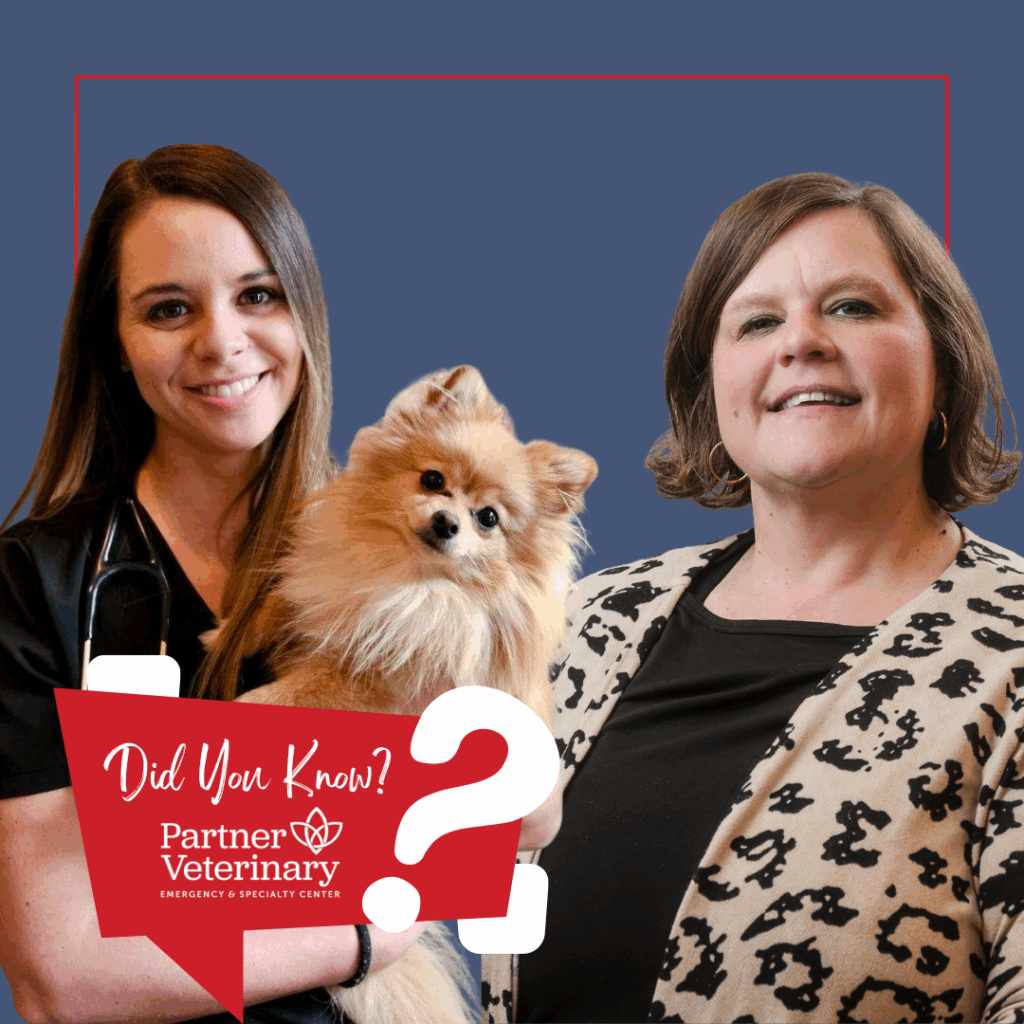
Episode 11 – How Partner is Helping the Most Vulnerable Pets
April is Prevention of Cruelty to Animals Month, and “We Can Help” is at the core of everything Partner does, including our ability to help animals who have been subjected to cruelty. In this episode, we have an open discussion about Animal Protection with Hospital Steward Christy Schwartz and ER Dr. Erica Ditzler, both from Partner’s Richmond hospital. Both Christy and Dr. Ditzler have tremendous experience in helping the communities’ most vulnerable dogs and cats, and help lead the Partner team of caregivers in navigating these difficult cases. We discuss how Partner has been instrumental in helping neglected and abused animals in the Richmond community, and learn how people can help support animal protection organizations in their own communities.
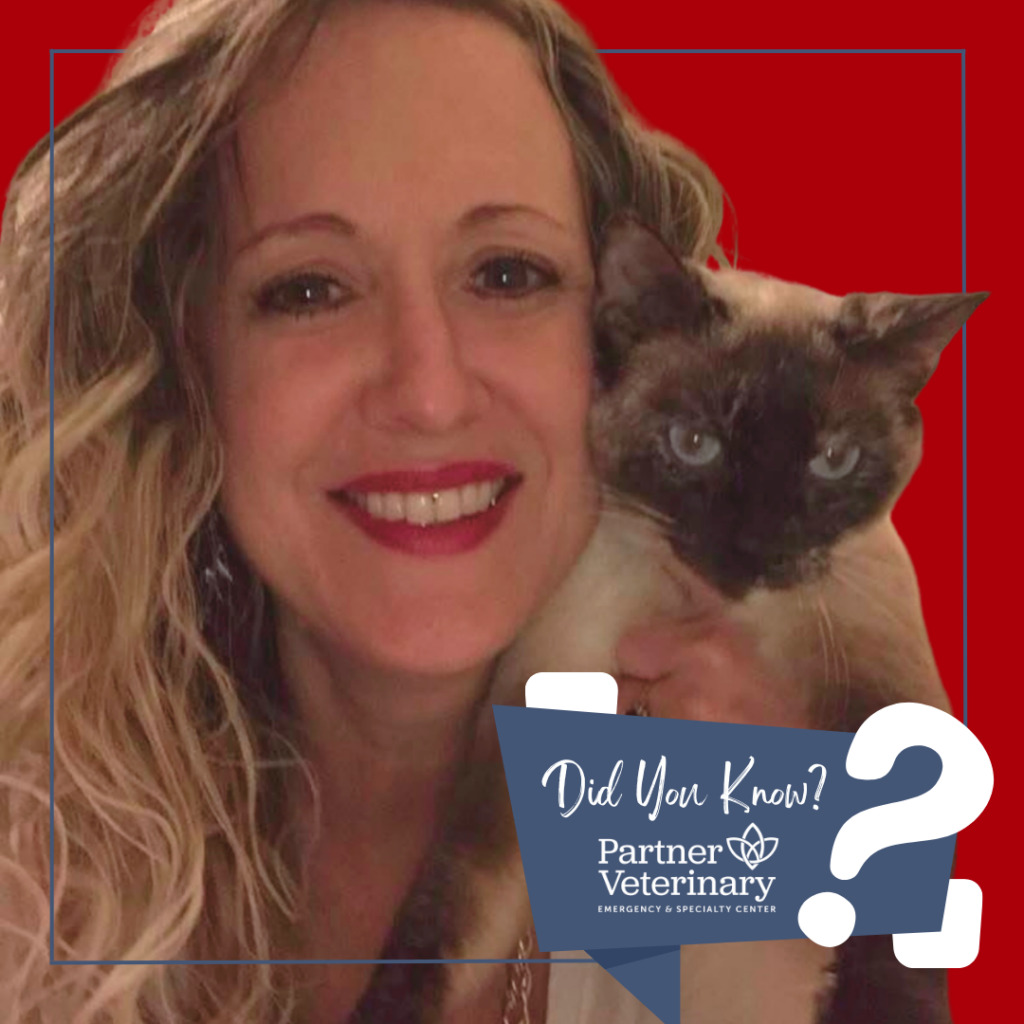
Episode 10 – How Can I Help? Adventures in Hospital Concierge Care
Have you ever wondered who might be calming your pet’s nerves after they are behind closed doors? That’s a pretty important role, and just one of the many things Partner’s Hospital Concierge does during her shift. Listen to Maria Kean, our Frederick Hospital Concierge, talk about what her day entails. From keeping the hospital clean to helping calm your pet’s nerves, she does it all.
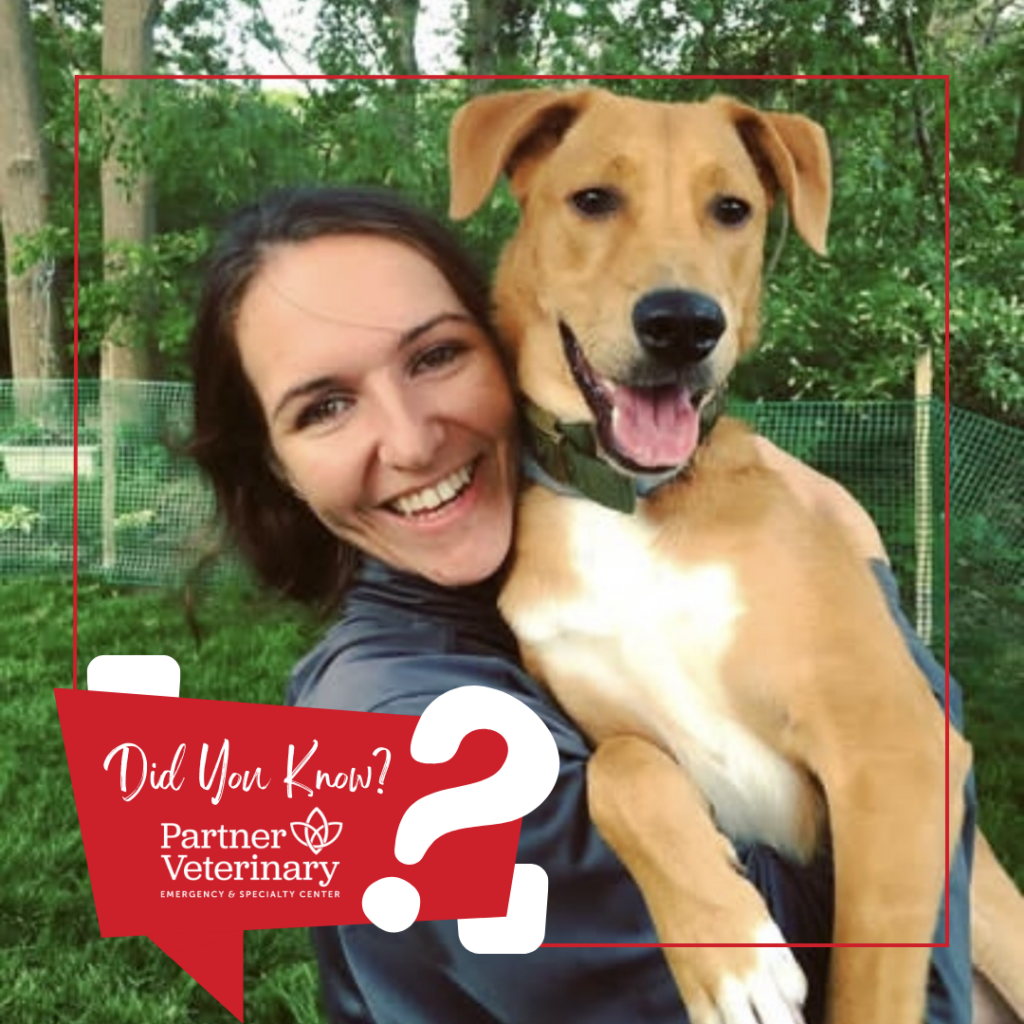
Episode 9 – Can Acupuncture Help My Pet with Dr. Keri Levinson
Did you know acupuncture can be used for pets? This relatively new treatment in veterinary medicine supports a wide variety of medical problems, from acute to chronic conditions, such as pain, osteoarthritis, chronic cough/respiratory conditions, and gastrointestinal, immunologic, and neurologic conditions (paresis/paralysis) as a result of acute injury, general aging, or chronic disease.
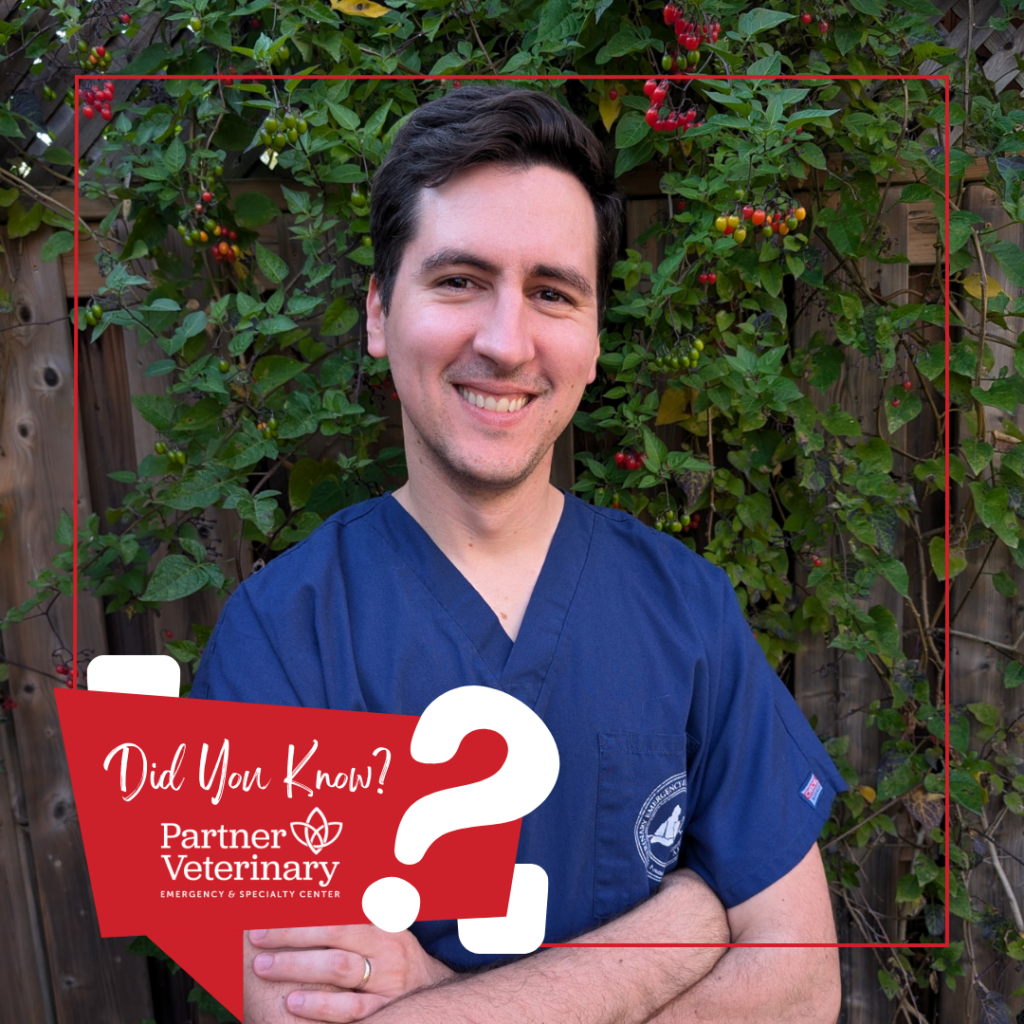
Episode 8 – How We Care for Our Most Critical Patients with Dr. Pierre Charlebois
Our Richmond hospital offers Critical Care to some of our sickest patients. But do you know what the difference is between a Critical Care doctor and an Emergency Veterinarian? Dr. Pierre Charlebois, a board-certified Criticalist for PVESC in Richmond explains how the two are different and the specific care a Criticalist can offer patients who come through Partner’s doors.

Episode 7 – What Happens if My Pet Needs CPR with Dr. Rachael Boyd
Dr. Rachael Boyd, Partner’s Lead Emergency Veterinarian in our Richmond location, has been practicing ER medicine with a focus on Trauma Medicine for more than 10 years. In this podcast, she explains what’s involved with both stabilization and resuscitation, what training our teams go through to provide these medical interventions, and the overall success rate of both.

Episode 6 – Partner’s Triage Process with Dr. Rachael Boyd
Dr. Rachael Boyd is Partner’s Lead Emergency Veterinarian in our Richmond location. She has been practicing ER medicine with a focus on Trauma Medicine for more than 10 years. In this podcast, Dr. Boyd gives us an in-depth explanation on Partner’s Triage Process—an order of treatment that dictates how patients are prioritized in an ER setting.
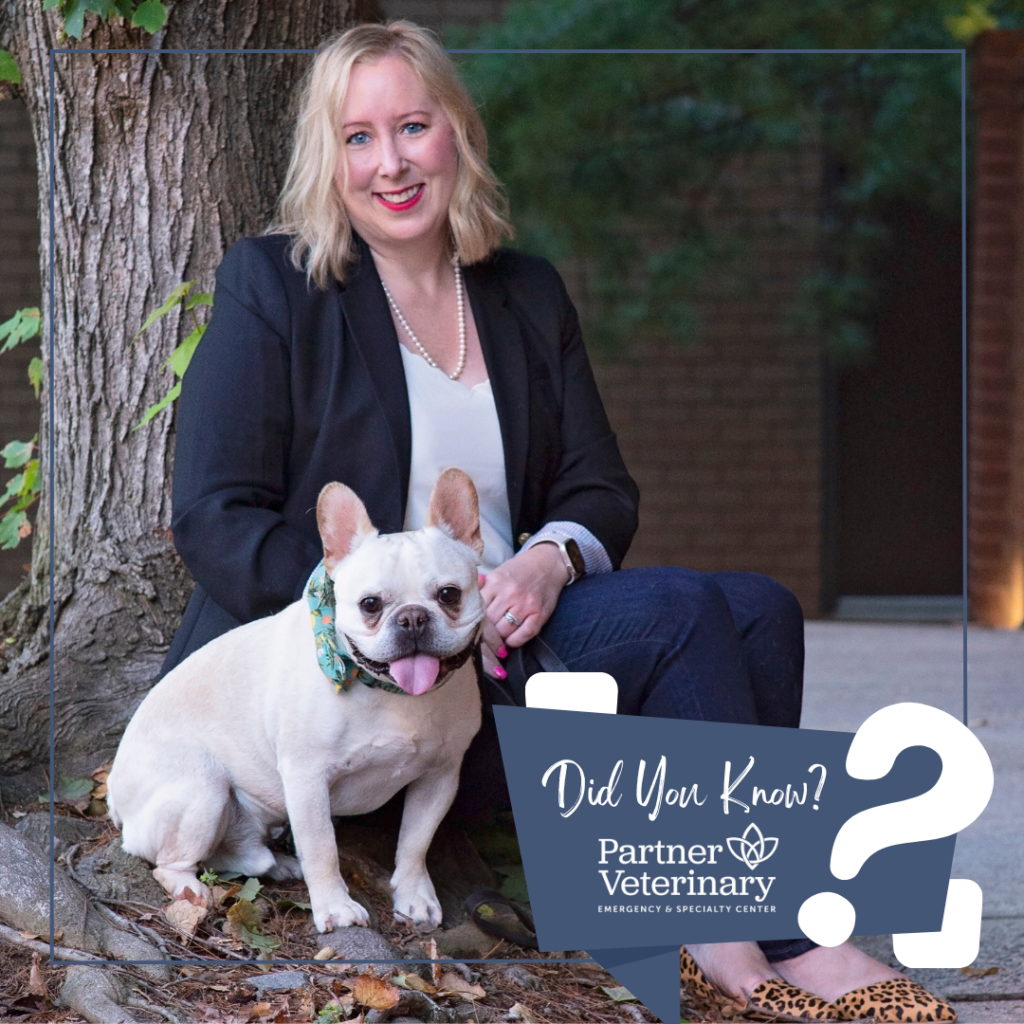
Episode 5 – Creating a Better Partner with Jamie Leach
Jamie Leach, Partner’s People Operations Coordinator, is working to help create a better environment for team members and better care for our patients. Obsessed with animals, Jamie always knew she wanted to work with them in some capacity, and she’s doing just. How? By helping make Partner’s team members work lives easier so that they can focus on helping the pets who come through our doors.

Episode 4 – Vet Tech Chat with Jamie Wesolowski, AAB, BS, RVT, VTS (Oncology)
Jamie Wesolowski is a Veterinary Technician Specialist with Partner’s Richmond Oncology department. In our interview, Jamie discusses how she chose to become a veterinary technician, what some of the most important moments of her career have been, as well as some of the hardest. We also talk about how pet insurance can play such an important role in helping pet owners make difficult treatment decisions.
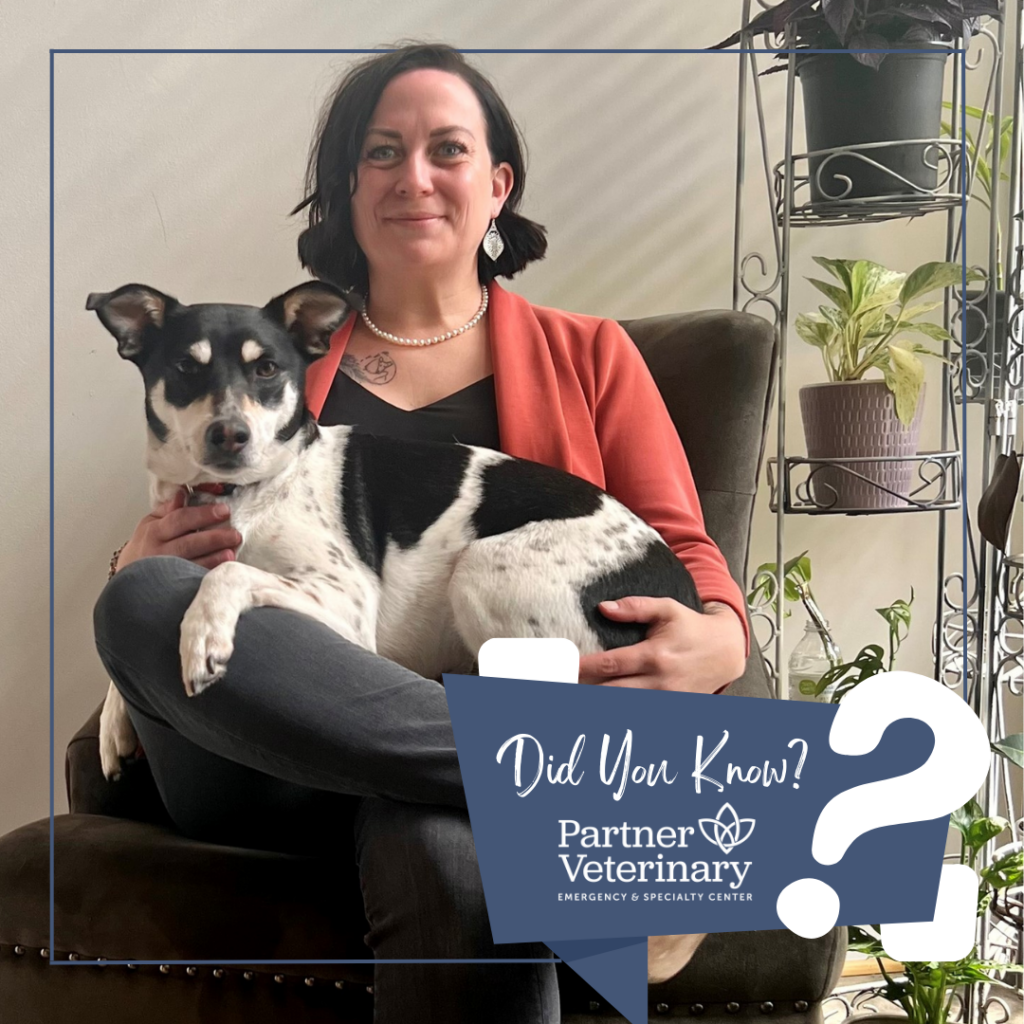
Episode 3 – Treating Cancer in Pets with Melissa Miller, DVM
Dr. Melissa Miller is a Medical Oncologist for Partner’s Richmond Hospital. In our interview, Dr. Miller discusses why she chose to practice oncology, the biggest misconceptions in cancer treatment, what families should do if their pet’s been diagnosed with cancer, and much more.
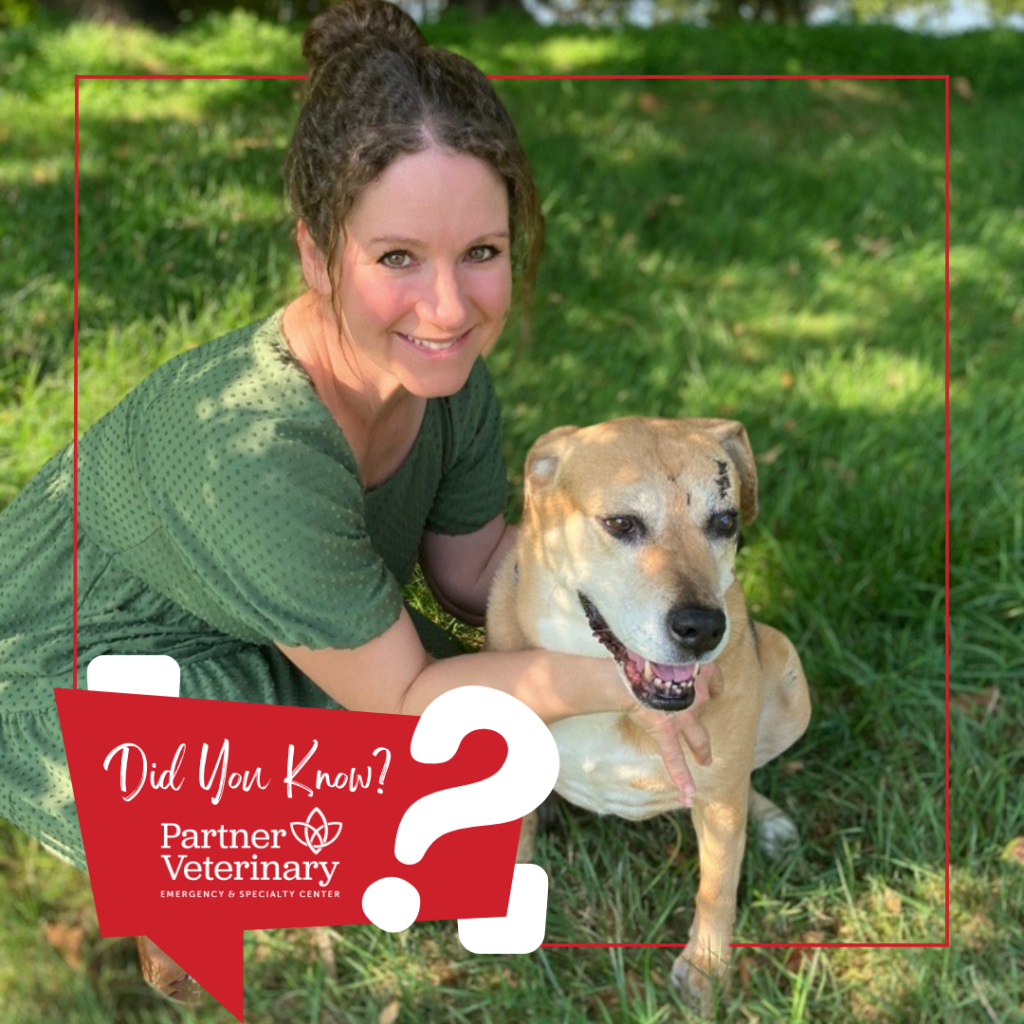
Episode 2 – Leadership with Julie Crosby
Julie Crosby is the Hospital Steward for Partner’s Frederick Hospital. In our interview, Julie tells us what a Hospital Steward does, how her time in the veterinary profession has shaped her, and how her moment of fame led to the adoption of her sweet dog, Emma.
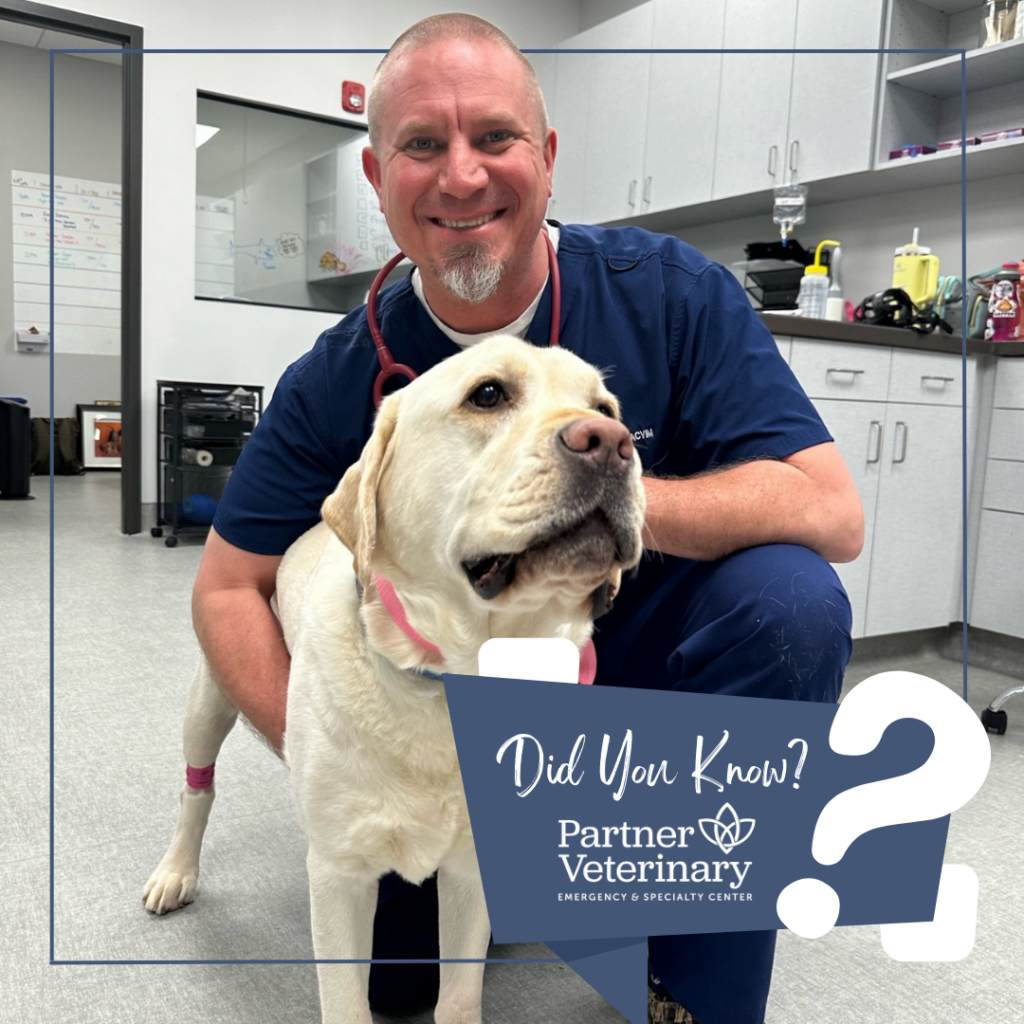
Episode 1 – Neuro with Neary
Dr. Casey Neary, neurologist and neurosurgeon discusses common misconceptions about neurological cases and give us insight into what it takes to become a veterinary neurologist.
